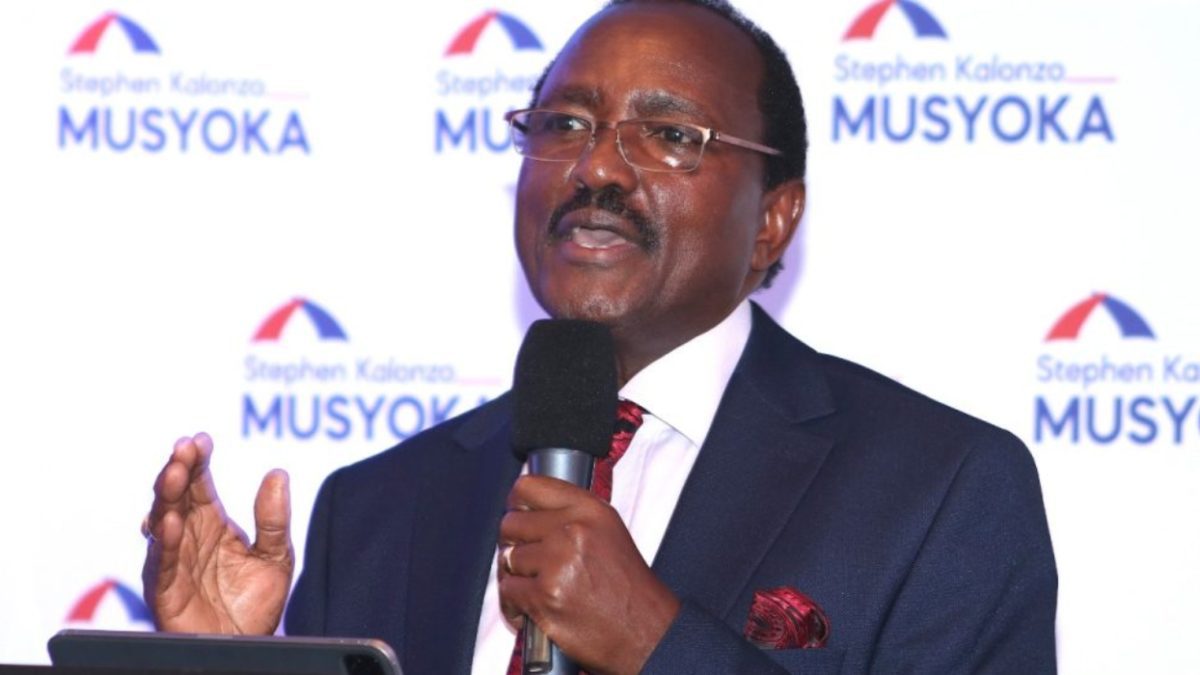Kalonzo Musyoka speaking during his 40 years in politics event on May 7, 2025. PHOTO/@skmusyoka/X
Wiper Party has strongly responded to the Orange Democratic Movement (ODM) over its recent remarks regarding Raila Odinga’s health, terming the statement as an act of political desperation and misplaced drama.
In a hard-hitting statement through X on Sunday, October 5, 2025, Wiper dismissed ODM’s accusations as “political theatre”, saying the party had lost its moral compass and political relevance.
The party maintained that its leader, Kalonzo Musyoka, harbours no ill will toward Raila Odinga, describing any suggestion to the contrary as false and malicious.
“Let it be stated clearly that Kalonzo Musyoka harbours no ill will whatsoever toward Odinga. The two leaders share a long public history of cooperation and mutual respect,” the statement read in part.
Political distraction
Wiper further accused ODM of attempting to drag Kalonzo into internal party confusion as a way to distract the public from cracks within the so-called broad-based government that ODM now supports.
“It is a mockery of the nation’s intelligence that ODM, once a beacon of reform, now finds comfort in bed with a regime that butchered young people during the Gen Z protests and continues to abduct online critics in the dead of night,” Wiper said.
Also watch: I will not attend the ODM’s founder members’ party – Kalonzo to Raila Odinga
According to the party, ODM’s now close association with President William Ruto’s administration is evidence that it has abandoned its reformist roots.
Wiper argued that the ODM statement was not about Raila’s health but rather an attempt to hide its guilt and fear over the direction it has taken politically.
The party also addressed Raila’s failed bid for the African Union Commission chairmanship, saying Kalonzo had no role in that outcome.
Wiper blamed the loss on diplomatic mismanagement by the very government ODM now supports.
“His defeat was not a shock but a reflection of the government’s diplomatic failures and lack of strategy on the continental stage,” the statement said.
Wiper concluded by reaffirming Kalonzo’s commitment to justice, truth, and a Kenya that values life and liberty over political convenience.
“No one will drag Kalonzo Musyoka into their self-inflicted political decay,” the party declared.

By Paulette Mboga, K24






